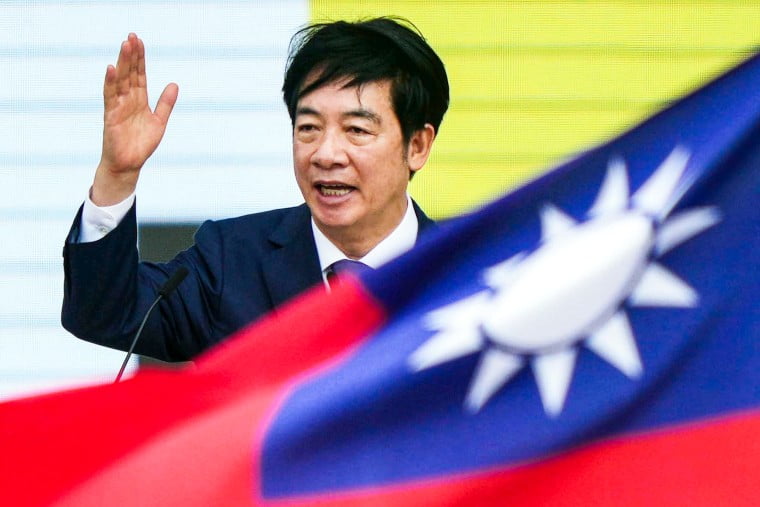China, which considers Taiwan to be its own territory, has been attacking President Lai Ching-te personally on a regular basis.
In Short
- China considers Taiwan its territory and warns against formal independence.
- Taiwan President Lai Ching-te stresses Taiwan’s sovereignty.
- China has labeled Lai a “separatist” and conducted war games near Taiwan.
- Lai advocates for negotiations with Beijing but faces rejection.
- Rising tensions highlight the fragile status of cross-strait relations.
- Open communication and recognition of threats are essential for Taiwan’s defense.
TFD – China has issued a stern warning against Taiwan formally declaring independence. In response, Taiwan’s President Lai Ching-te has reiterated the island’s sovereignty, emphasizing that only the people of Taiwan can determine their future. As tensions escalate, the world watches closely.

Taiwan President Lai Ching-te stated on Sunday that China sees the annexation and “elimination” of Taiwan as its great national purpose. She advised cadets at the military’s top academy to recognize their opponent and resist defeatism.
Since taking office last month, China—which considers Taiwan to be its own territory—has been branding Lai a “separatist” and has been subjecting him to constant personal insults. Not long after Lai took office, China held war games near Taiwan.
Lai has frequently volunteered to hold negotiations with Beijing but has been turned down. She believes that only the people of Taiwan can decide their own destiny.
On the 100th anniversary of the Whampoa Military Academy’s inception, Lai made a speech in Kaohsiung, in the southern part of the island, and stated that cadets of today need to understand the difficulties of the “new era.”
Using Taiwan’s official name, he stated, “The biggest challenge is to face the powerful rise of China, (which is) destroying the status quo in the Taiwan Strait and regards Taiwan’s annexation and the elimination of the Republic of China as the great rejuvenating cause of its people.”
Inquiries about Lai’s remarks were not answered by China’s Taiwan Affairs Office on Sunday.
At a symposium on relations with Taiwan on Saturday, Wang Huning, the fourth-ranking leader of China’s ruling Communist Party, stated that “reunification is a historical necessity for the great rejuvenation of the Chinese nation,” promising to “smash any separatist plots.”
Lai stated that the cadets must protect Taiwan from Chinese annexation and that the island’s destiny can only be determined by its people during the gathering that was attended by senior military officials as well as the top American ambassador in Kaohsiung, Neil Gibson.
Referring to the idea that Taiwan may fall apart the moment China began an invasion, Lai stated, “We really must be able to distinguish between ourselves and our enemies and between friend and foe, and absolutely cannot accept the defeatism of ‘the first battle is the last battle’.”
The academy was established in 1924, more than ten years after the last emperor was overthrown and the Republic of China was established in Guangzhou, then known as Canton in English.
Founded in 1949 with assistance from the Soviet Union to provide China with a professional military devoted to the emerging state, it first moved to Nanjing, Chengdu, and then Kaohsiung when the defeated Republican government retreated to the island after Mao Zedong and his communist troops prevailed in the civil war.
China claims that Taiwan would be attacked if it attempted to formally declare its independence. According to the Taipei government, Taiwan is already the Republic of China, and there are no plans to change that.
Conclusion
The ongoing tension between China and Taiwan remains a critical geopolitical issue. President Lai Ching-te’s firm stance on Taiwan’s sovereignty underscores the island’s determination to resist annexation. As China continues to exert pressure, it is crucial for Taiwan to maintain vigilance and foster resilience. The world must pay attention to these developments, understanding the broader implications for regional and global stability. Taiwan’s future hangs in the balance, shaped by the resolve of its people and leaders.
Connect with us for the Latest, Current, and Breaking News news updates and videos from thefoxdaily.com. The most recent news in the United States, around the world , in business, opinion, technology, politics, and sports, follow Thefoxdaily on X, Facebook, and Instagram .